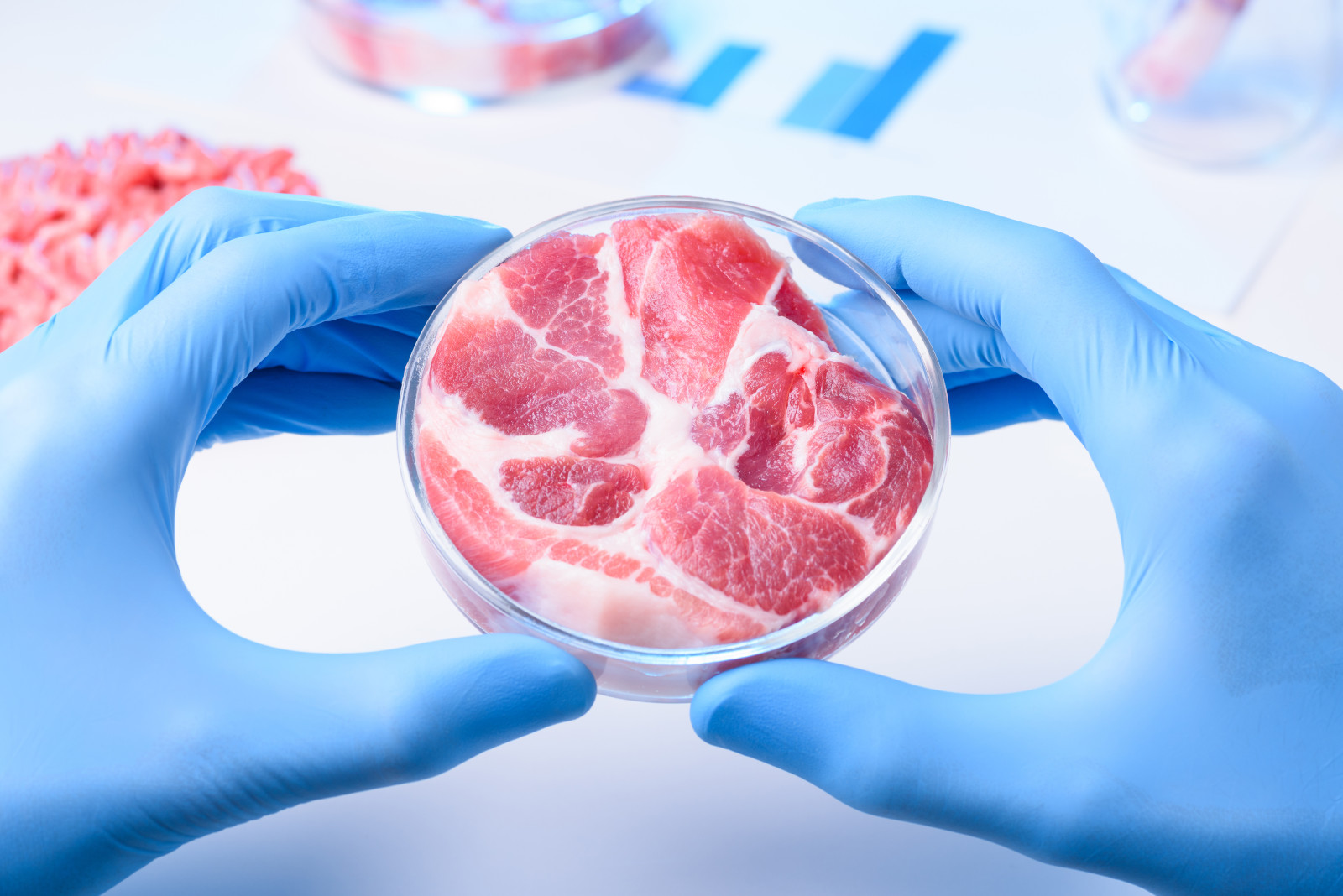Speaking of alternative proteins…

Could alternative proteins be the building blocks for a greener MENA? Alternative proteins — meat, egg, or dairy replacement products that are plant-based, cultivated, or fermentation-derived — are seeing rapid global market growth as a substitute for traditional protein sources. They could constitute 7.7% of the global protein market by 2030 — rising to USD 162 bn from USD 29.4 bn in 2020, according to an August 2021 Bloomberg Intelligence report. In fact, by 2040, 60% of protein consumed by humans could be either grown in vats or replaced by plant-based products that resemble meat, a 2019 Kearney report predicted.
(We have deep suspicion about the impact on human health of highly processed frankenfoods such as these — suspicions we’ll get into another day. In all cases, it is clear that a growing number of businesses of all sizes are looking into the sector.)
This growth of the sector involves some cool and cutting-edge tech, note foodtech entrepreneurs the Digital Food Lab. It could range from mixing various plants to produce a meat or dairy-like texture (as is the case with plant-based alternatives), to “growing” meat in a lab (as is the case with cultivation or cellular agriculture), to finding yeast or bacteria that can produce specific protein, or even genetically modifying the yeast or bacteria to create the protein (as is the case with fermentation).
The argument: That traditional meat and dairy production are a big contributors to the emissions driving climate change: The global production of food is responsible for about a third of all GHG emissions from human activity, according to a 2021 study published in Nature Food. 57% of these emissions come from the use of animals for food and livestock feed, compared to 29% from the cultivation of plant-based foods.
Alternative proteins have the potential to dramatically slow climate change, says a March 2022 McKinsey interview with global sector representatives. “Cellular agriculture has the potential to reduce GHG emissions by 78-96% compared to traditional agriculture,” one leader notes. “Alternative proteins are a key climate solution. Tremendous [chances] exist for companies and investors to participate at every point along the value chain,” noted a rep of US NGO the Good Food Institute in late-2021.
The MENA market is still small, but it’s growing: The MENA alternative protein market is expected to reach USD 2.71 bn by 2029, up from an estimated 1.03 bn in 2021, according to Data Bridge Market Research. The MENA meat replacement market stands at roughly USD 180 mn, with a 10% CAGR, while the alternative dairy market stands at some USD 1.2 bn with a 12% CAGR, said the CEO of US-based startup MycoTech, quoted in a February 2022 article. Its whey protein market is expected to grow to some USD 1.38 bn in 2026, up from USD 1.01 bn in 2021, he added.
Recent regional developments could fuel this: A partnership between Qatar and Eat Just will see them build a cultivated-meat facility: US-based startup Eat Just — which makes cultured chicken and vegan eggs from mung beans — is partnering with Qatari state-backed Doha Venture Capital and the Qatar Freezones Authority to build a cultivated-meat facility in Qatar’s Umm Alhoul Freezone, which it claims will be “the first-ever cultivated meat facility in the [MENA] region.” This could take two years and cost USD 200 mn. The Qatari government has already granted it an export license.
There’s a joint venture between the Oman Investment Authority and MycoTech to make mushroom-based protein: MycoTech and the Oman Investment Authority (OIA) agreed to set up a joint venture, Vital Foods Technologies, to use the natural sugar present in dates as carbon to fuel the production of mushroom-based protein. OIA and MycoTech are due to start construction on a production facility in 1H 2023, with commercial operations due to begin in 2Q 2025. The aim is to process some 16k tonnes of dates a year. OIA led a Series E investment funding round in MycoTech earlier this year, which raised USD 85 mn.
And Israeli foodtech firm SavorEat launched a 3D printed burger that’s created on site and is being served at restaurants in Israel. While Impossible Foods and Beyond Meat also offer 3D printed burgers (which are usually frozen and cooked on a grill), SavorEat’s technology allows customers to create their burgers on site using a 3D printer. The burgers, made from potato, chickpea and pea protein, can be customized — with the amount of fat and protein adjusted.